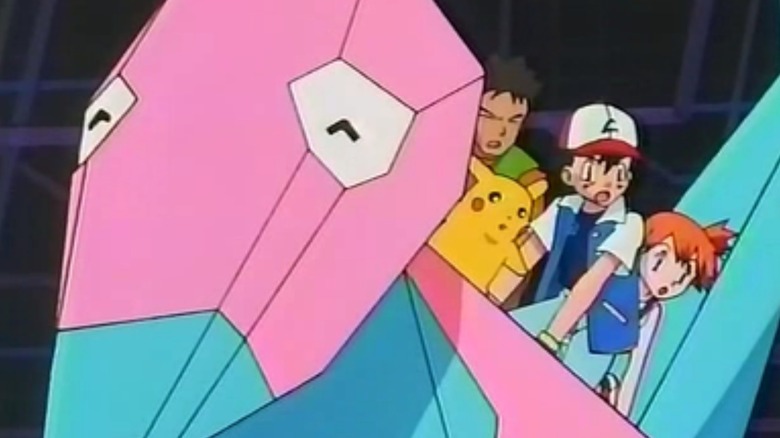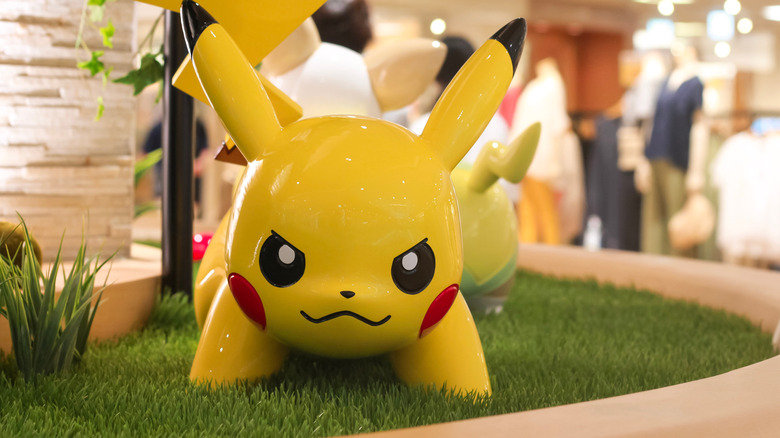Why You Can't Watch Pokémon's Electric Soldier Porygon Episode On Most Streaming Services
There are, at last count, just over 1000 varieties of Pokemon, but only one has ever been accused of trying to kill children. Two if you count Mr. Mime, although there's substantial evidence that he's not really a Pokemon, just a middle-aged man in rompers trying to convince kids to catch him.
No, the chief offender is none other than Pikachu, which hurts more since we trusted him. Like so many icons of the entertainment industry, the electric rat that so many of us grew up admiring got up to some shady business back in the '90s. Want to talk about cancel culture? Pikachu's behavior got a whole episode of his show pulled from the air and wiped from future releases. And why? Just because he caused hundreds of children to simultaneously experience epileptic seizures, leading to widespread hospitalizations across Japan? Bunch of millennial snowflakes.
But he did, though. Pikachu gave a bunch of kids seizures. What's worse, he never even apologized. Probably. It's hard to be sure.
Detective Pikachu and the Case of the Electric Brain Kerfuffles
The year was 1997, and the Pokemon franchise was already a phenomenon. On December 16, millions of children across Japan had their eyes glued to their television sets, taking in a new episode of the anime series. As Metro pretty dramatically reports it, "700 of them never saw the end." Pump your scary brakes, Metro.
The episode in question, with a title that translates to something like "Electric Soldier Porygon" or "Computer Warrior Porygon," featured your pretty standard Pokemon fare. Animals with superpowers fought to the point of unconsciousness because some kids told them to. Ash and friends get sucked into a computer "Tron"-style to try and stem the no-goodery of Team Rocket. The problems started around the 20-minute mark, when a thunderbolt attack from Pikachu resulted in rapidly flashing red and blue lights.
As it turns out, it's not wildly uncommon for exposure to that particular strobe effect to cause photosensitive epileptic episodes. As a result, the Skeptical Inquirer reports that some 618 children were on their way to the hospital with a variety of symptoms before the end of the night. In neuroscience's answer to old-timey slapstick, news broadcasts reporting on the phenomenon may have triggered even more seizures in the following days. Reporters called it "Pokemon Shock." Nintendo's stock price took a 3% dip. It was anarchy. Sheer anarchy.
And then it wasn't. The episode was pulled from the air and, even with the brain-scrambling bits cut out, can't be found on streaming services. That said, you can still find the offending clip on YouTube if you feel like maybe throwing up for a while.

